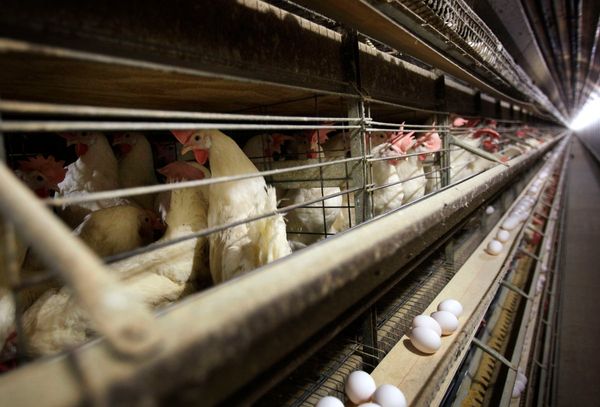
Within the ongoing and toxic “debate” about trans rights, secondary school teacher, trade unionist and writer Debbie Hayton offers a unique perspective — she is a trans woman with gender-critical views. Her debut book, Transsexual Apostate, uses memoir as a jumping-off point for her wider theories and opinions about transgender identity. It promises to act as a “compassionate call to move beyond ideological conflicts”. But it’s often hard to find much compassion in a book where so many of her arguments hinge on perpetuating harmful tropes, dodgy studies, largely debunked theories, outdated gender stereotypes about both men and women, and a handful of outrageous claims.
Hayton starts off by sharing her own personal experiences, writing about the sense of shame she felt as a young child who desperately wished to be “magically turned into a girl” and her relief at starting a relationship with now-wife Stephanie, who also shares her perspective in an epilogue. “I was pleased with how life had turned out; without the internet, it might well have continued that way,” Hayton claims.
Later, aided by the internet, she says, Hayton discovered the possibility of transition and began accessing services at the Gender Identity Clinic. Her experiences post-transition seem to be mostly positive. People have been broadly accepting and supportive, which is exactly how it should be. But from here, things get a little thornier. Since transitioning in 2012, Hayton’s views have shifted. While she once viewed gender identity as a fluid, mutable spectrum, she now believes that — to quote one of her own inflammatory slogan T-shirts — “trans women are men, get over it”.
A whole chapter is dedicated to laying out exactly how Hayton arrived here. She says that her eyes were opened by the fringe theory of autogynephilia, which was popularised in the Eighties by a sexologist called Ray Blanchard. There are plenty of cracks in this widely debunked thesis, which lends supposed scientific legitimacy to many of the most troubling tropes around trans women as predators and fetishists; not to mention that Blanchard reached many of his conclusions by following dodgy methodology. But still, Hayton is entitled to view herself and her own identity as she wishes. The real issues start when the author begins presenting these individual beliefs as uncontested facts.
Many of Hayton’s statements about the inherent differences between men and women are also too sweeping to take seriously
Despite her insistence that she values rational thought, science and data over emotion and feeling, Hayton’s own biases cloud the way at every turn, and she has a tendency to omit anything that proves inconvenient to her narrative.
Queer people — who contradict many of Hayton’s somewhat binary ideas around sexuality — are rapidly dismissed as “some heterosexuals, who perhaps want to celebrate unusual sexualities”. Non-binary identity, mostly ignored until chapter six, is a new phenomenon Hayton attributes to people being online a lot during the pandemic (Judith Butler may have something to say about that one).
She frequently characterises the activists who disagree with her as all-powerful bullies who have a clueless government, keen to appease the “mob”, in their pockets. But you only have to watch this week’s PMQs, in which Rishi Sunak used trans people as a cruel, point-scoring punchline in the same week that Brianna Ghey’s killers were sentenced, to see the contempt on display in Westminster and beyond.
Many of her statements about the inherent differences between men and women are also too sweeping to take seriously. “Men are thinking-preference, while women have a tendency to be feeling-preference,” she claims, citing a 2007 study of 931 teenagers. A series of quite comical diagrams do little to bolster the sense of scientific gravitas. One particular optical illusion of a staircase — which is supposed to suddenly shift in perspective when it’s flipped upside down; apparently a metaphor for the way that the brain naturally views sex as binary — didn’t work, no matter how much I twizzled the page.
At one point, she mourns for the “teenage girls [who] will never be able to breastfeed their own babies after electing to have a double mastectomy”. Not only is this insulting to cis women — reducing our purpose to a very specific kind of baby-rearing — it’s also misleading. Transgender people in the UK cannot actually access this kind of gender-affirming surgery until they are legally adults (and therefore not still girls, boys, or children). Under what justification, then, should the bodily autonomy of trans adults be limited more than anybody else’s in society? Hayton doesn’t have the answers.
Most obvious, is the wider lack of imagination; after attempting to dismantle the concept of gender identity (repeating herself several times in the process — the same Kemi Badenoch quote appears twice, and I actually lost count of the amount of times trans women were referred to as a “priestly class”) she does not have a single tangible idea for how lawmakers and politicians should proceed instead.
Even as she calls for reasonable and measured discussion, Hayton creates a clear dichotomy between the reasonable concerns of “ordinary women” and their backers, versus a furious alphabet mafia wielding pitchforks and corrupting our kids. Hayton holds “concerns”, while trans activists are in the grip of an “ideology”. Freedom of speech only appears to exist in one direction — when somebody is agreeing with her. If Hayton really craves a conversation, this polarising and bad faith approach is not the way to have it.
Transsexual Apostate: My Journey Back to Reality by Debbie Hayton (Forum, £16.99) is out now







